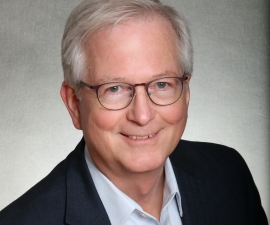

Research Bio
Jack Moehle received his Ph.D. from the University of Illinois and joined the U.C. Berkeley faculty in 1980. From 1991 to 2001 he was Director of the Earthquake Engineering Research Center at Berkeley, and in 1996 he became founding Director of the multi-university Pacific Earthquake Engineering Research Center, where he served until 2008.
His teaching and research includes topics in structural engineering, earthquake engineering, and reinforced concrete, with research covering both analytical and experimental methods; buildings, bridges, and infrastructure; materials, components, and complete structural systems, seismic retrofitting and design of new structures, including performance-based earthquake engineering.
He has played a leading role in the development of building codes and professional engineering guidelines for the design of new construction and the assessment and rehabilitation of seismically vulnerable existing construction, including Guidelines for Evaluation and Repair of Masonry and Concrete Walls (FEMA 306); Guidelines for Seismic Rehabilitation of Buildings (FEMA 273 and ASCE 356); Development of Next-Generation Performance-Based Seismic Design Procedures for New and Existing Buildings (FEMA P-58); and Guidelines for Performance-Based Seismic Design of Tall Buildings (Tall Buildings Initiative, PEER). He has been a member of the ACI 318 Building Code Committee since 1989, Chair of the Seismic Provisions subcommittee from 1995-2014, and currently serves as the ACI 318 Chair.
A licensed Civil Engineer in California, Dr. Moehle provides engineering consultation and expert peer review on highway systems (Caltrans, Works Consultancy New Zealand), mass transit systems (Bay Area Rapid Transit, Transbay Transit Center), water distribution systems (San Francisco Public Utilities Commission, New York City Aqueducts), existing construction (Stanford, UC Berkeley, US Army Corps of Engineers), and high-rise building consulting and peer review (Los Angeles, Reno, San Diego, San Francisco, Seattle).
Research Expertise and Interest
earthquake engineering, structural engineering, reinforced concrete, performance-based earthquake engineering, high-rise buildings, lifeline systems, rehabilitation (retrofitting), laboratory testing
In the News
New guide helps engineers design safer skyscrapers
Designing skyscrapers to withstand earthquakes is getting easier thanks to a team of researchers and practitioners organized by the Pacific Earthquake Engineering Research Center (PEER) at UC Berkeley. A new guide developed by PEER’s Tall Building Initiative, led by UC Berkeley structural engineering professor Jack Moehle, has standardized the design and review process for evaluating the seismic safety of buildings over 140 feet tall.
